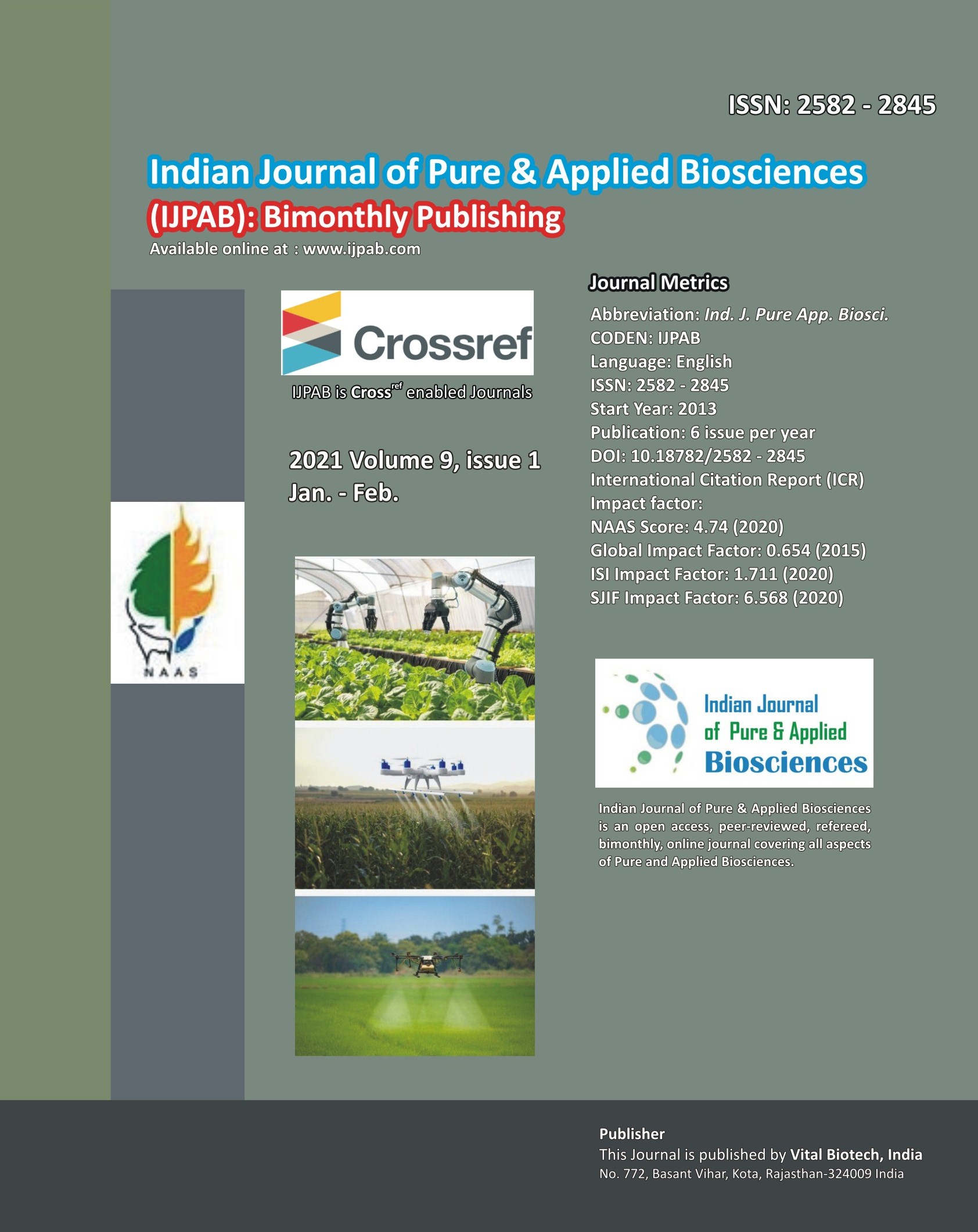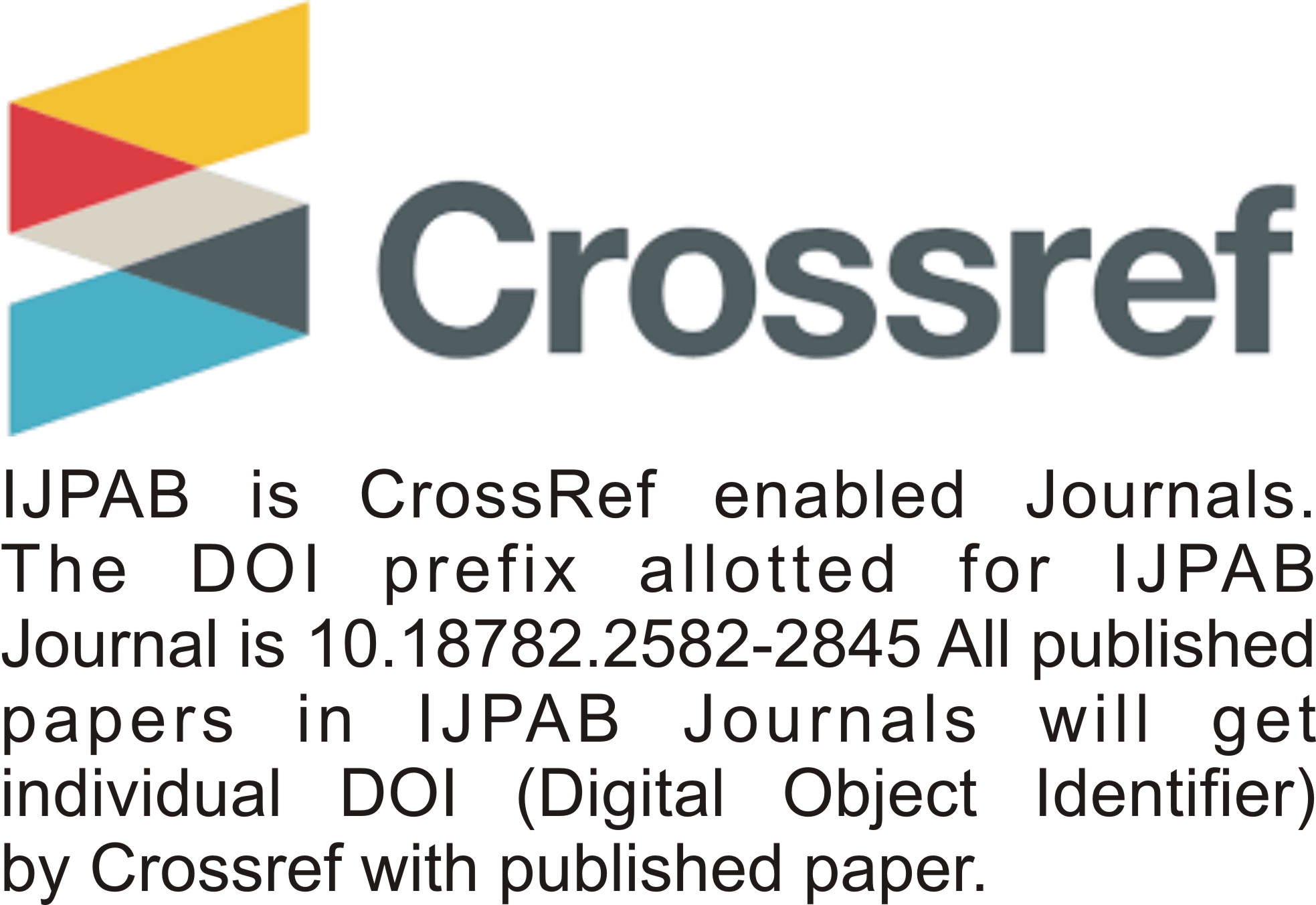
-
No. 772, Basant Vihar, Kota
Rajasthan-324009 India
-
Call Us On
+91 9784677044
-
Mail Us @
editor@ijpab.com
Indian Journal of Pure & Applied Biosciences (IJPAB)
Year : 2021, Volume : 9, Issue : 1
First page : (219) Last page : (235)
Article doi: : http://dx.doi.org/10.18782/2582-2845.8540
Long-term Effects of Tillage, Crop Residue and Crop Rotations on Soil Microbial Parameters under the Wheat (Triticum aestivum) Based Cropping Systems in Semi-Arid Northern India
U.K. Behera1*, Geeta Singh2, Amit Kumar3 and A.R. Sharma4
1Dean, College of Agriculture, CAU (I), Kyrdemkulai, Meghalaya
2Principal Scientist, Division of Microbiology, IARI, New Delhi 110 012,
3Scientist, ICAR Research Complex, Sikkim Centre (Sikkim),
4Director of Research, CAU, Jhansi (U.P.)
ICAR-Indian Agricultural Research Institute, New Delhi 110 012
*Corresponding Author E-mail: ukb2008@gmail.com
Received: 22.01.2021 | Revised: 19.02.2021 | Accepted: 26.02.2021
ABSTRACT
A long-term study (2004–2010) was conducted at Research Farm of ICAR-IARI, New Delhi, to evaluate the effects of tillage, residue management and crop rotations on soil microbial parameters in wheat (Triticum aestivum) based cropping systems. The results revealed that soil under maize–wheat and pigeonpea–wheat rotations showed the highest fluorescein diacetate (FDA) activity. Cotton–wheat cropping system consistently supported the lowest FDA and dehydrogenase (DHA) activity at both stages. The soils under ZT with and without residue had higher soil organic carbon (SOC), SMBC, FDA, DHA and urease than CT. The ZT soils with and without residue showed increased values of organic C (24%, 23.9%), FDA (400%, 97.7%), dehydrogenase (31.4%, 38.2%), urease (28.2%, 28.3%) compared to CT at the germination stage. At this stage, addition of crop residues in ZT enhanced dehydrogenase activity (54.7%), FDA (6.50%), alkaline phosphatases (4%), urease (4.80%), SOC (8.71%) and SMBC (13.4%) but reduced glomalin content. The acid phosphatase activity was reduced by 9.11% under ZT. Microbial population and diversity, and productivity of soil could be maintained or improved with zero tillage and crop residue recycling. Thus, in wheat based cropping systems, ZT with and without addition of crop residues is a viable option for improving the soil microbial properties.
Keywords: Crop residues, Cropping systems, Enzymes, Soil microbial parameters, Tillage.
Full Text : PDF; Journal doi : http://dx.doi.org/10.18782
Cite this article: Behera, U.K., Singh, G., Kumar, A., & Sharma, A.R. (2021). Long-term Effects of Tillage, Crop Residue and Crop Rotations on Soil Microbial Parameters under the Wheat (Triticum aestivum) Based Cropping Systems in Semi-Arid Northern India, Ind. J. Pure App. Biosci. 9(1), 219-235. doi: http://dx.doi.org/10.18782/2582-2845.8540

